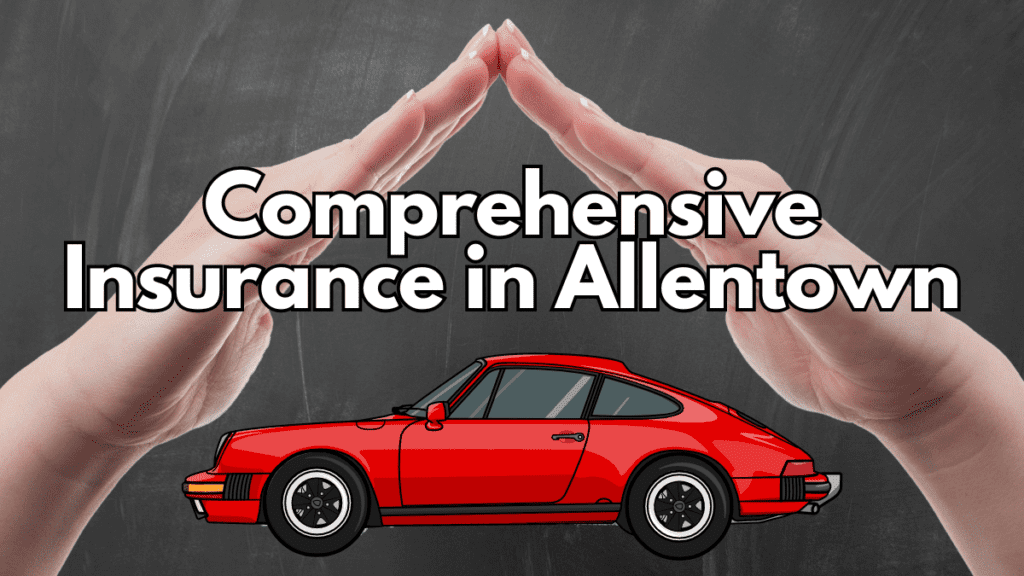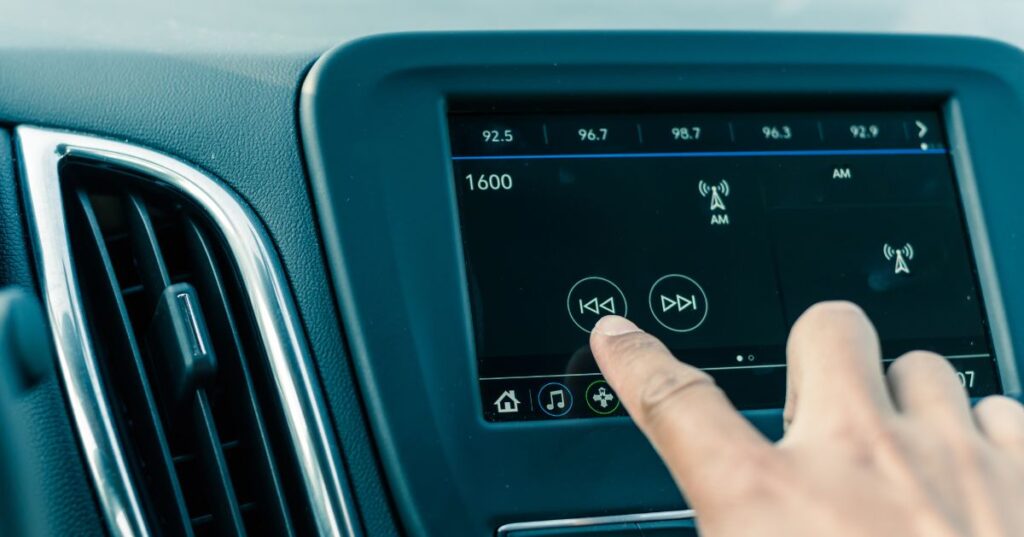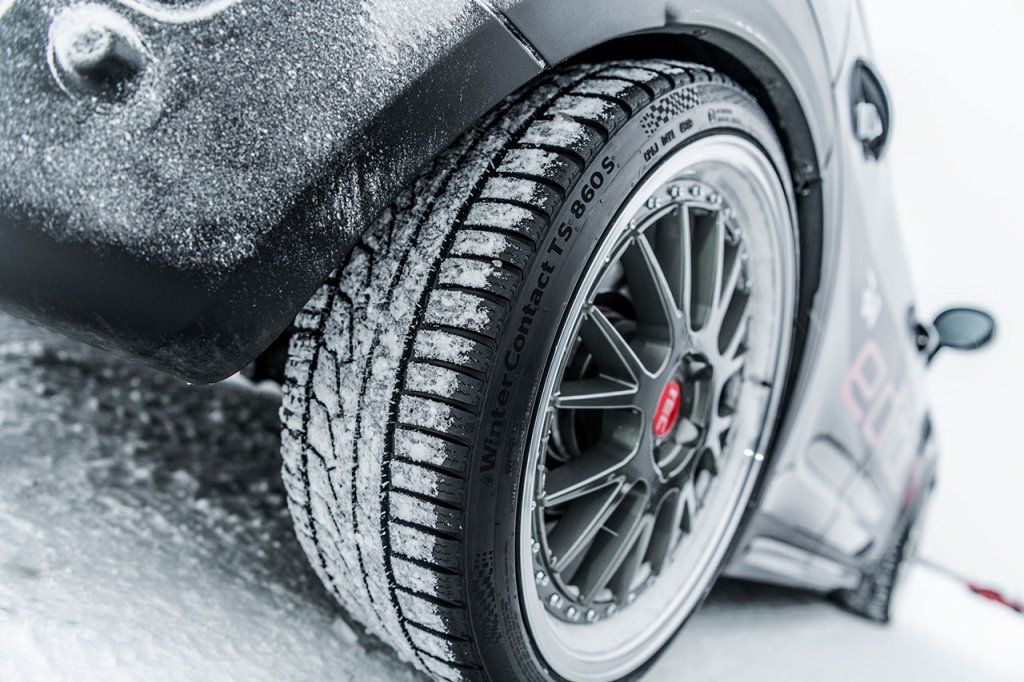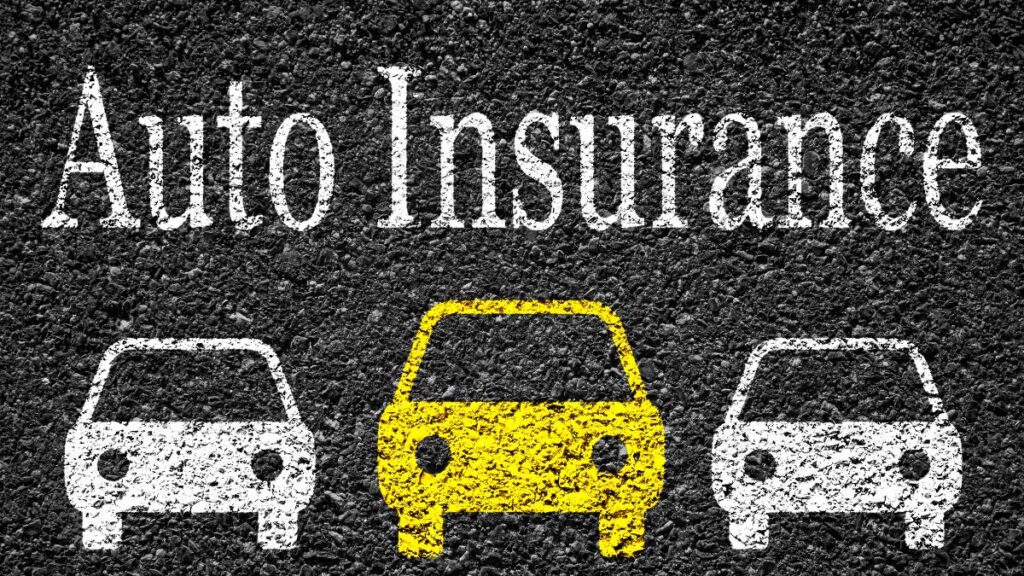Comprehensive insurance in Allentown is like a backup plan for your car. It covers things other than accidents, like theft or weather damage. It’s a good choice because it protects you in many situations.
When you choose this insurance, think about your driving habits, your car, and where you live, as these affect how much you pay. The right insurance plan should fit your needs and budget.
And when picking an insurance company, check their reputation and compare different quotes to get the best deal.
Contents
What is Comprehensive Insurance?
Comprehensive insurance, often referred to as “other than collision” coverage, is a key component of any robust auto insurance policy. It provides coverage for a variety of incidents that can result in damage to your vehicle, ensuring that you have a safety net in place when unforeseen events occur.
Unlike collision coverage, comprehensive insurance covers damage to your vehicle caused by events other than collisions. According to Progressive, this can include incidents such as theft, vandalism, fire, falling objects, and natural disasters.
Furthermore, comprehensive insurance also provides coverage for damage to your vehicle caused by hitting an animal. This can prove invaluable in rural areas of Allentown where the risk of such incidents may be higher.
In addition to these, comprehensive insurance may cover personal belongings within the vehicle and medical expenses resulting from an accident. Some policies may also include rental car reimbursement, ensuring that you have a vehicle to use while your car is being repaired (Spotts Insurance Group Inc.).
It’s important to note that while comprehensive insurance provides a wide range of coverage, it does not cover damage resulting from a collision. For such coverage, you would need to explore collision coverage or liability insurance options.
Pros and Cons of Comprehensive Insurance

Understanding the benefits and drawbacks of comprehensive insurance can help you make an informed decision about whether this type of coverage is right for you.
The primary benefit of comprehensive insurance is the peace of mind it provides. Knowing that you’re covered for a wide range of incidents, from theft to natural disasters, can alleviate stress and financial uncertainty.
The coverage for personal belongings and potential inclusion of rental car reimbursement are other significant advantages.
If your vehicle is being repaired or replaced due to a covered incident, knowing that your policy may help cover the cost of a replacement vehicle can be incredibly beneficial.
On the downside, comprehensive insurance tends to be more expensive than basic collision or liability coverage. It’s important to weigh the cost against the potential benefits to determine whether comprehensive coverage is a worthwhile investment for you.
Before making a decision, consider the value of your vehicle and the likelihood of encountering the incidents covered by comprehensive insurance.
If you drive an older vehicle or live in an area with a low risk of theft or natural disasters, you might find that the cost of comprehensive coverage outweighs the potential benefits.
On the other hand, drivers of newer, higher-value vehicles or those living in high-risk areas may find comprehensive insurance to be a necessary safeguard.
When considering comprehensive insurance in Allentown, check out our guide on auto insurance coverage for further details.
Comprehensive Insurance in Allentown

For those residing in Allentown, navigating the ins and outs of comprehensive insurance is critical, especially when considering the city’s higher-than-average car insurance rates.
Cost of Comprehensive Insurance in Allentown
The average annual cost of car insurance in Allentown, Pennsylvania stands at $1,497 (Insure.com). This figure is noticeably higher than the national average, which is $1,323 annually. In fact, Allentown ranks as one of the most expensive cities in Pennsylvania for car insurance.
Given these costs, it’s crucial that drivers in Allentown carefully evaluate their needs and budget when seeking comprehensive auto insurance coverage.
| Location | Average Annual Car Insurance Cost |
|---|---|
| Allentown, PA | $1,497 |
| National Average | $1,323 |
Local Insurance Providers
Several local insurance providers offer comprehensive car insurance coverage in Allentown. One example is Spotts Insurance Group Inc., who provides personalized service to help clients choose the right comprehensive insurance coverage that fits their needs and budget.
Comprehensive insurance, although not required by law in Pennsylvania, is recommended for protecting your vehicle from non-collision-related damages, such as theft, vandalism, fire, or natural disasters.
It can also cover damages caused by hitting an animal. For individuals with a car loan or lease, your lender or leasing company may require you to carry comprehensive insurance coverage.
To learn more about comprehensive insurance options and claim processes for Allentown drivers, particularly those insured by Otosigna, visit our Otosigna auto insurance Allentown page.
For information on collision coverage, visit our collision coverage Otosigna page. For liability insurance options, check out our liability insurance Otosigna page.
By understanding the local market and the offerings of different providers, Allentown drivers can ensure they choose the best comprehensive insurance coverage that meets their needs.
Claiming Comprehensive Insurance
Understanding when and how to file a claim for comprehensive insurance is a key part of making the most of your policy. Here, we provide some guidance for Allentown drivers with Otosigna insurance on the claim process in 2024.
When to Make a Claim?
Comprehensive insurance coverage is designed to protect you from financial loss if your vehicle is damaged due to non-collision incidents. This includes scenarios like theft, vandalism, fire, falling objects, and natural disasters (Allstate). It also extends to damage caused by hitting an animal.
If your vehicle experiences damage of this nature, it’s time to consider making a claim. Remember, however, that comprehensive insurance is optional and may not be included in every auto insurance policy.
If you’re unsure about what your Otosigna auto insurance covers in Allentown, review your policy details or consult with your insurance agent.
Steps to Making a Claim
If you need to make a comprehensive insurance claim, follow these steps to navigate the process:
- Report the Incident: If your vehicle is damaged or stolen, report the incident to the local authorities. Obtain a copy of the vehicle accident report for your records and the insurance claim.
- Contact Your Insurance Provider: Get in touch with Otosigna as soon as possible to report the incident and initiate the claim process. You can do this via the Otosigna claim submission page or through the Otosigna online claim portal or mobile app.
- Document the Damage: Take clear photographs of the damage to your vehicle and gather any other relevant documentation related to the incident (e.g., police reports, witness statements). You’ll need to submit this documentation as part of your claim.
- Get a Repair Estimate: Otosigna may require you to obtain an auto repair estimate from one of their approved Allentown car repair shops. In some cases, a vehicle inspection may be necessary.
- Await Claim Approval: Once you’ve submitted all the necessary information, Otosigna will review your claim. The claim approval process can take some time, so be prepared to wait.
If your claim is disputed by Otosigna, consider seeking legal advice or exploring dispute resolution options.
Remember, filing a claim on your comprehensive insurance may affect your premium rates in the future, so it’s crucial to consider the costs and benefits before proceeding.
For a more detailed guide on filing an auto insurance claim in Allentown in 2024, visit our claim guide.
Factors Affecting Comprehensive Insurance
Comprehensive insurance is a significant component of the insurance spectrum. As someone who drives in Allentown, understanding the factors that affect the cost and efficacy of your comprehensive insurance coverage can help you make informed decisions and get the best value for your money.
Vehicle Type and Value
The type and value of your vehicle play a crucial role in determining the cost of your comprehensive insurance. Luxury cars or cars with high repair costs often attract higher premiums for comprehensive insurance as they are more expensive to replace or repair.
The age of the vehicle also impacts the cost, with older cars typically costing less to insure compared to newer models (The Zebra).
Moreover, some vehicles are more prone to theft, and this risk can increase the cost of comprehensive coverage. Therefore, if you drive a vehicle that’s on the most-stolen cars list, you might end up paying more for comprehensive coverage.
Deductible Amounts
A deductible is the amount you’re responsible for paying before your insurance coverage kicks in. The amount of your deductible can significantly impact your comprehensive insurance premiums. Generally, higher deductibles lead to lower premiums and vice versa.
However, it’s essential to choose a deductible that you can comfortably afford in the event of a claim, as this amount will be out of pocket.
When choosing your deductible, consider your financial situation and the value of your vehicle. If your car is older and has a lower market value, it may not make sense to choose a high deductible.
Conversely, if your vehicle is newer or has a high market value, a higher deductible could help you save on your premium while still providing the coverage you need.
Remember, comprehensive insurance in Allentown is not just about cost but also about ensuring you have the right coverage to protect against potential losses.
For more information about comprehensive insurance and how to claim it, visit our guide on how to claim auto insurance in Allentown 2024 Otosigna.
Comprehensive Insurance Laws in Pennsylvania

Understanding the local laws and regulatory requirements pertaining to comprehensive auto insurance is essential for drivers in Allentown, Pennsylvania, especially those with Otosigna insurance.
State Requirements for Auto Insurance
Pennsylvania law mandates all motor vehicle owners to maintain vehicle liability insurance on a currently registered vehicle. This insurance coverage is intended to cover property damage or injuries caused to others in a crash. The law applies to all drivers, regardless of their insurance provider.
While the state law requires liability insurance, it doesn’t specifically require comprehensive insurance. However, if you’re leasing or financing your vehicle, your lender might require you to carry comprehensive coverage.
Even if it’s not required, comprehensive insurance can provide additional protection for your vehicle in situations not covered by liability insurance. Learn more about the benefits of comprehensive insurance in Allentown here.
Penalties for Lapses in Coverage
A lapse in insurance coverage, even for a short period, can have serious consequences in Pennsylvania. If the lapse is for a period of less than 31 days and the owner can prove that the vehicle was not operated during this short lapse in coverage, the vehicle registration privilege will be suspended for three months.
During the suspension, the registration plate and card need to be surrendered to PennDOT (Source).
Alternatively, vehicle owners can opt to pay a civil penalty of $500, along with a restoration fee and proof of current insurance. This allows the vehicle owner to maintain registration on their vehicle without serving a three-month suspension (Source).
Insurance companies are obligated to notify PennDOT when an insurance policy is cancelled by the insured. However, they are not required to notify PennDOT when a vehicle owner acquires a new insurance policy.
As such, it is the responsibility of the vehicle owner to notify PennDOT of the new insurance policy after receiving a proof letter from PennDOT. Failure to respond to PennDOT’s proof letter will result in the suspension of the vehicle registration (Source).
In the event of a lapse in coverage, vehicle owners can request and print a free vehicle registration restoration requirements letter online. This letter outlines the criteria that must be met before a vehicle’s registration can be restored.
Ensuring continuous coverage is one of the most important aspects of managing your auto insurance. For more guidance on how to claim auto insurance in Allentown in 2024, visit our resource page.
Protecting Your Vehicle with Comprehensive Insurance
In Allentown, as a driver, especially as an Otosigna policyholder, it’s crucial to ensure the safety and protection of your vehicle. Comprehensive insurance offers a safety net for situations beyond collisions. Understanding how to assess your insurance needs and choosing the right coverage is an essential step in this process.
Assessing Your Insurance Needs
Comprehensive insurance is an optional coverage that adds an extra layer of protection to your auto insurance policy. It covers damage to your vehicle caused by events other than a collision, such as fire, theft, vandalism, or weather-related incidents (Spotts Insurance Group Inc.).
This coverage can help pay for repairs or replacement of your vehicle if it is stolen or damaged in a non-collision incident.
Before adding comprehensive insurance to your policy, consider the following factors:
- The age and condition of your vehicle: If your vehicle is older or has high mileage, the cost of comprehensive coverage might outweigh the potential benefits.
- Your location: If you live in an area prone to theft or severe weather, comprehensive coverage can provide valuable protection.
- Your financial situation: Can you afford to replace or repair your vehicle out-of-pocket if it’s damaged in a non-collision incident?
It’s also important to note that if you have a car loan or lease, your lender may require comprehensive coverage.
Choosing the Right Coverage
After assessing your needs, the next step is to choose the right comprehensive coverage for your vehicle. Here are some factors to consider:
- Deductible amount: Comprehensive insurance typically has a deductible, which is the amount you must pay out of pocket before your coverage kicks in. Higher deductibles can help lower your premium, but it will mean you’ll have to pay more if you file a claim.
- Coverage limit: This is the maximum amount your insurance company will pay for a covered loss. Make sure the limit is high enough to cover the cost of repairing or replacing your vehicle.
- Additional coverage: Depending on your situation, you might want to consider additional coverages such as collision coverage or liability insurance.
When selecting comprehensive coverage, ensure to read through your policy thoroughly and understand what it covers. If you’re unsure about anything, don’t hesitate to ask your Otosigna insurance agent for clarification.
Remember, protecting your vehicle with comprehensive insurance is more than just fulfilling a legal requirement; it’s about ensuring peace of mind while on the road. By carefully assessing your insurance needs and choosing the right coverage, you can drive in Allentown with confidence, knowing that you’re covered.
Conclusion
Comprehensive insurance in Allentown is a practical choice for car owners. It covers more than just accidents, offering protection against theft, weather damage, and other unexpected events. It’s important to choose a plan that matches your personal needs and budget.
Also, picking the right insurance company matters. Look for one with a good reputation and compare quotes to ensure you’re getting the best deal for your money. With the right comprehensive insurance, you can drive with the confidence that you’re well-protected on the road.







